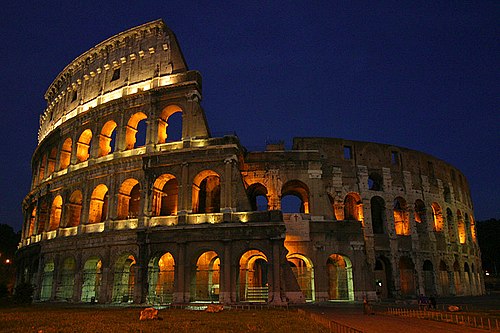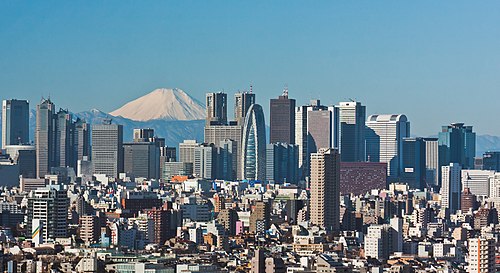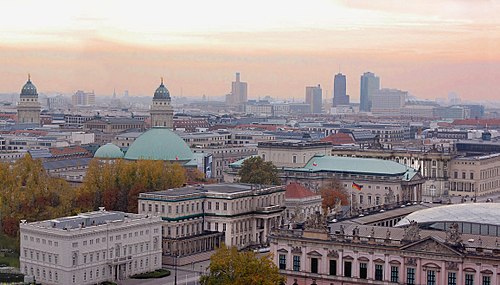Metropolisnoun
(history) The mother (founding) polis (city state) of a colony, especially in the Hellenistic world.
Metropolisnoun
The mother country of a colony.
Metropolisnoun
A large, busy city, especially as the main city in an area or country or as distinguished from surrounding rural areas.
Metropolisnoun
(canon law) The see of a metropolitan archbishop, ranking above its suffragan diocesan bishops.
Metropolisnoun
(ecology) A generic focus in the distribution of plants or animals.
Metropolisnoun
The mother city; the chief city of a kingdom, state, or country.
Metropolisnoun
The seat, or see, of the metropolitan, or highest church dignitary.
Metropolisnoun
Any large city.
Metropolisnoun
a large and densely populated urban area; may include several independent administrative districts;
Metropolisnoun
people living in a large densely populated municipality;
Metropolis
A metropolis () is a large city or conurbation which is a significant economic, political, and cultural center for a country or region, and an important hub for regional or international connections, commerce, and communications. The term is Ancient Greek (μητρόπολις) and means the of a colony (in the ancient sense), that is, the city which sent out settlers.
Megacitynoun
A very large city; a megalopolis.
Megacity
A megacity is a very large city, typically with a population of more than 10 million people. Precise definitions vary: the United Nations Department of Economic and Social Affairs in its 2018 report counted urban agglomerations having over 10 million inhabitants.































